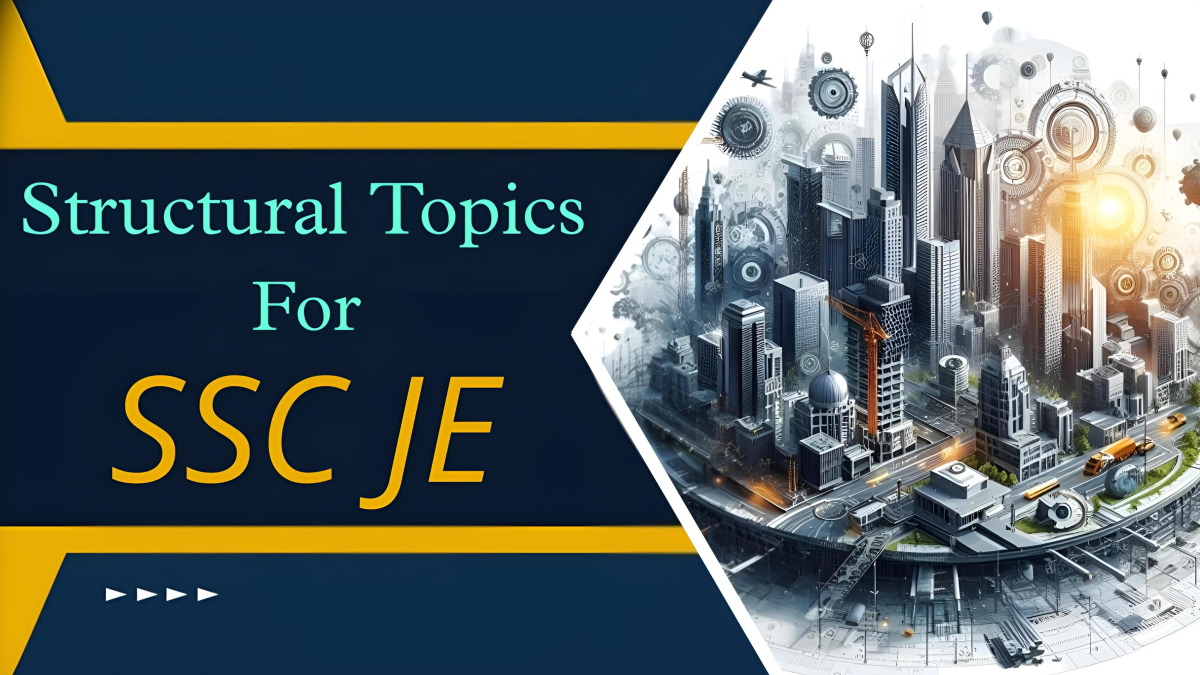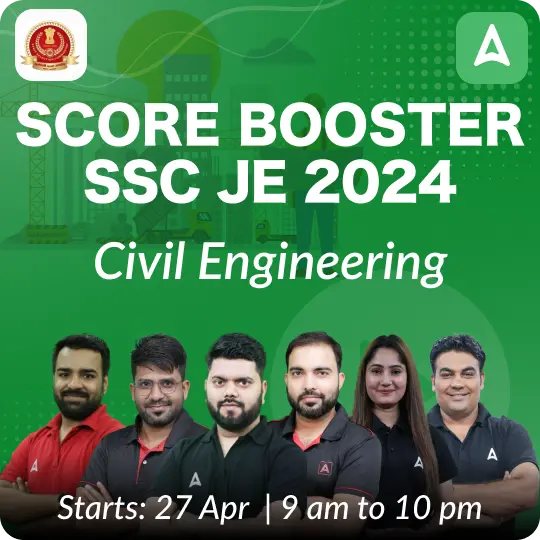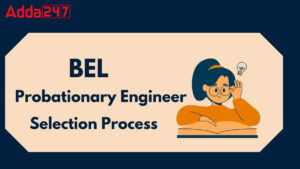Table of Contents
The Staff Selection Commission has posted a notification on its official website regarding the SSC JE Exam 2024. They are seeking to recruit individuals interested in becoming Junior Engineers in various government departments or ministries. This exam presents a great opportunity for those aspiring to secure a government job. If you are considering taking the SSC JE Exam in 2024, it is essential to start preparing for the Structural Engineering syllabus.
Structural Engineering: The Keystone for SSC JE Aspirants
Structural Engineering is a pivotal branch of Civil Engineering that deals with the analysis and design of structures that support or resist loads. For aspirants aiming to crack the Staff Selection Commission Junior Engineer Exam, a deep dive into the most in-demand topics of Structural Engineering is essential. This article outlines the key areas that candidates should focus on to enhance their preparation for the SSC JE exam.
Understanding the SSC JE Structural Engineering Syllabus
The SSC JE exam is known for its comprehensive coverage of Civil and Structural Engineering concepts. The syllabus is designed to test the candidates’ theoretical knowledge as well as practical application skills. The following are the core topics that every SSC JE aspirant must master:
Theory of Structures
This forms the backbone of Structural Engineering, encompassing crucial concepts such as bending moments and shear forces, deflection of beams, and various methods of structural analysis.
- Elasticity constants, types of beams – determinate and indeterminate
- Bending moment and shear force diagrams of simply supported
- Cantilever, and overhanging beams
- Moment of area and moment of inertia for rectangular & circular sections
- Bending moment, and shear stress for tee, channel, and compound sections
- Chimneys
- Dams and retaining walls
- Eccentric loads
- Slope deflection of simply supported and cantilever beams
- Critical load and columns
- Torsion of circular section
Concrete Technology
A thorough understanding of the properties of concrete, along with the design and testing of concrete structures, is vital.
- Properties, Advantages, and uses of concrete
- Cement aggregates
- The importance of water quality
- Water-cement ratio
- Workability,
- Mix design
- Storage
- Batching
- Mixing
- Placement, compaction, finishing, and curing of concrete
- Quality control of concrete
- Hot weather and cold weather concreting repair
- maintenance of concrete structures
RCC (Reinforced Cement Concrete) Design
Knowledge of the principles of RCC design, including the latest codes and practices, is a must.
- RCC beams-flexural strength
- Shear strength
- Bond strength
- Design of singly reinforced
- Double reinforced beams
- Cantilever beams
- T-beams
- Lintels
- One-way and two-way slabs
- Isolated footings
- Reinforced brickwork,
- Columns, staircases, retaining walls, water tanks (RCC design questions may be based on both Limit State and Working Stress methods)
Steel Design
Familiarity with the design of steel structures, using standard codes, is another area where questions are frequently asked.
- Steel design and construction of steel columns
- Beams roof trusses plate girders
In-Demand Topics for SSC JE Preparation
Based on the analysis of previous years’ question papers and expert recommendations, the following topics are identified as high-yield areas for SSC JE Civil aspirants:
- Hydraulics: Fluid mechanics and hydraulics are integral to Structural Engineering, with a focus on formula-based numerical questions.
- Soil Mechanics: Understanding the behavior of soil under various conditions is crucial for foundation design. Topics like index properties and soil classification are often emphasized.
- Environmental Engineering: With a growing emphasis on sustainable development, environmental aspects of Structural Engineering are becoming increasingly important.
- Transportation Engineering: This includes the design and maintenance of roads, railways, airports, and harbors, which are critical for infrastructure development.
- Estimating, Costing, and Valuation: The ability to estimate the cost and value of structures is a practical skill that is highly valued in the SSC JE exam.
Strategies for Effective Preparation
- Prioritize High-Scoring Topics: Focus on subjects that carry more weight in the exam and have a higher frequency of questions.
- Practice Numerical Problems: Many questions in the SSC JE exam are numerical problems, so regular practice is essential.
- Stay Updated with Codes and Standards: Ensure that you are familiar with the latest codes and standards related to Structural Engineering.
- Mock Tests and Previous Papers: Regularly attempt mock tests and solve previous years’ papers to get a feel for the exam pattern and time management.
Structural Engineering is a dynamic field that requires a solid grasp of various subjects. For SSC JE Civil aspirants, focusing on the most in-demand topics and adopting a strategic approach to preparation can pave the way to success. Remember, consistency and practice are key to mastering the vast syllabus and achieving your goal of becoming a Junior Engineer.




 DRDO CEPTAM 11 Apply Online 2025 Starts,...
DRDO CEPTAM 11 Apply Online 2025 Starts,...
 BEL Probationary Engineer Selection Proc...
BEL Probationary Engineer Selection Proc...
 BEL Eligibility Criteria 2025, Age Limit...
BEL Eligibility Criteria 2025, Age Limit...





